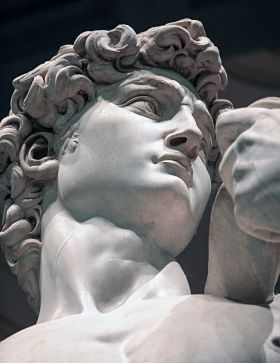345. What a Piece of Work is Man: Manetti and Pico on Human Nature
Pico della Mirandola and Giannozzo Manetti praise humans as the centerpiece of the created world. But what about the other animals?
Themes:
• F. Borghesi, M. Papio, and M. Riva (ed. and trans.), Pico della Mirandola: On the Dignity of Man. A New Translation and Commentary (Cambridge: 2012).
• B.P. Copenhaver (trans.), Giannozzo Manetti: On Human Worth and Excellence (Cambridge MA: 2018).
• C. Wallis, P. Miller, and D. Carmichael, Pico della Mirandola: On the Dignity of Man, On Being and the One, Heptaplus (Indianapolis: 1965).
---
• S.U. Baldassarri (ed.), Dignitas et excellentia hominis: atti del Convegno internazionale di studi su Giannozzo Manetti (Florence: 2008).
• O. Glaap, Untersuchungen zu Giannozzo Manetti, “De dignitate et excellentia hominis”: ein Renaissance-Humanist und sein Menschenbild (Stuttgart: 1994)
• P.O. Kristeller, “The Dignity of Man,” in his Renaissance Thought and its Sources (New York: 1979), 169-81.
• D. Marsh, Giannozzo Manetti: The Life of a Florentine Humanist (Cambridge MA: 2019).
• C.M. Trinkaus, In Our Image and Likeness: Humanity and Divinity in Italian Humanist Thought, 2 vols (London: 1970).







Comments
Vagueness in Further Reading section
Hi, Peter!
Can you explain what triple "-" denote in the Further Reading section?
Thanks!
In reply to Vagueness in Further Reading section by Mirza Beglerov…
Dashes
Oh right, we just started doing that recently at Chike's suggestion. It separates the primary texts (above the dashes) from secondary literature (below).
Logic
With the advent of many different types of logic, the whole part of "even animals must use syllogisms if they reason" is quite dubious in my eyes. Ibn Taymiyya's critique of the "philosopher's logic" (aristotelian) is making more sense to me. I highly doubt that animals need this specific formalisation of logic to reason.
I know you have already covered different logics in the sense that you have covered the indian debates about logic, which certainly weren't aristotelian but, for the main series, when are we going to get to people who try to engineer a different logic than Aristotle's? Also curious if we are going to debate the status of logic again like with the stoics vs aristotelians? Maybe I am being impatient, since I half suspect that that specific debate is going to revive soon because of the resurgence of interest in the stoics.
It is actually a bit weird to me. As someone interested in computer science, I know the importance the role logic has, but I can't help but agree with people like Ibn Taymiyya. How to square this circle I wonder.
Human Nature and Choice
Hi Peter,
[A quick caveat: I never studied philosphy formally and merely dabble here and there amongst interesting things. So I apologise in advance if/when I've missed something huge and have you cradling your head in your hands!]
This fascinating coverage of Dignity of Man got me seeing connections to much later philosophers such as Kierkegaard and Sartre who seem to place choice - and all its attendant risks and fears- at the heart of their Ethical systems.
While even someone un-schooled in philosophy can see how the ability to choose does differentiate humans from other animals, I can't help but wonder...
Did anyone in the Medieval or later periods offer a rebuttal to this elevation of choice? Is choice not, to some extent at least, over-rated? Has the profusion of choice not led to many outcomes that we might consider to be ethically (in the sense of virtue) or morally (in the sense of harm) bad?
Apologies if this question doesn't even make any sense!
-AJ
In reply to Human Nature and Choice by AJ
Choice
That question absolutely makes sense! And is very interesting. I have to admit I can't think of a text off the top of my head that critiques choice as a marker of human superiority, though certainly plenty of authors critique humankind for the way they use choice, and sometimes even say that this makes the wicked human worse than the beast. But I think in this period it was taken for granted that choice is an importantly, even decisively, good power when used rightly. There were a lot of disagreements about what choice is, how it relates to God's power, etc, but I think not about this.
Add new comment